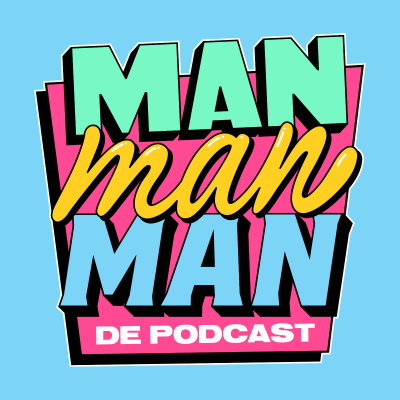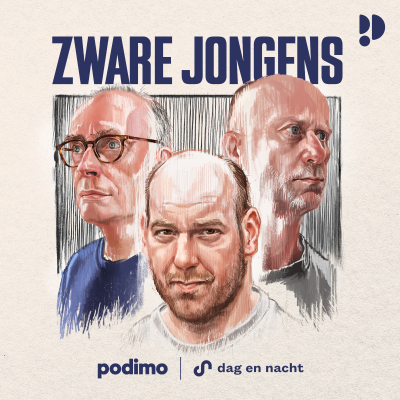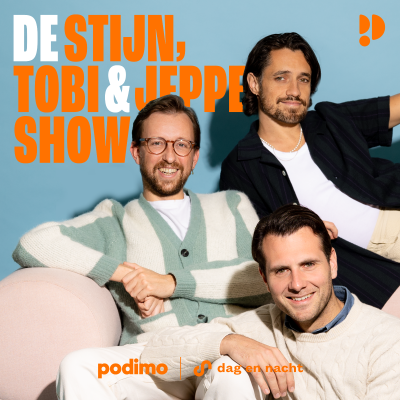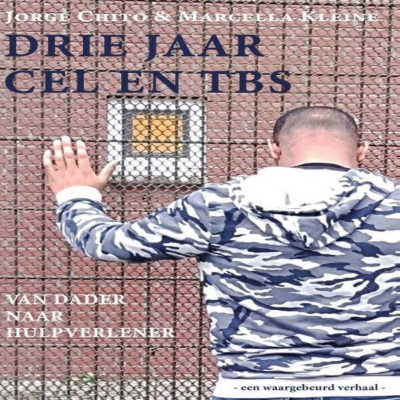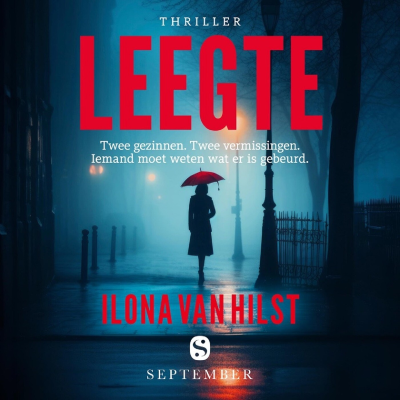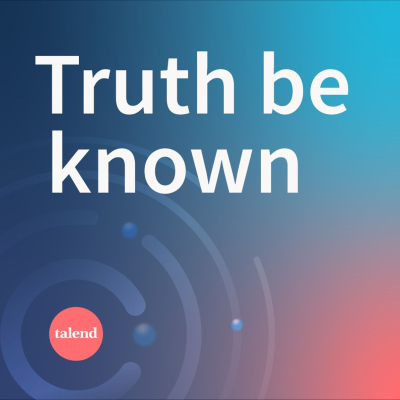
Truth Be Known
Podcast door Talend
Decisions have to be made on tight deadlines, often with imperfect information. Truth Be Known tells the stories about the messy work that goes into these decisions, and how modern leaders seek truth in an uncertain world. Each episode features a short story and an interview with a senior technology leader. They explain the ideas, processes, and mountains of data that inform their decisions.
Tijdelijke aanbieding
3 maanden voor € 1,00
Daarna € 9,99 / maandElk moment opzegbaar.
Alle afleveringen
39 afleveringenThis episode features an interview with Nasim Khoshkhou, SVP of Analytics and Data at Synchrony, a premier financial services company with one of the industry’s most complete digitally enabled product suites. At Synchrony, Nasim is responsible for driving data-driven decision making across the organization as well as leading both the analytics team as well as the business insights and solutions team. Prior to Synchrony, Nasim spent 12 years at Argus Information and Advisory Services where she started as an Analyst and worked up to become President of Argus Portfolio Management. In this episode, Nasim discusses her top three priorities as a data leader, personalizing the user experience through data and AI, and how to be a strategic partner to the business so that you’re delivering more than just the baseline. Quotes *”AI has been used heavily in a number of use cases around credit and fraud. And there's always a trade off and an analysis that has to be done, which is how much incremental benefit does it bring to a particular use case, versus the complexity. But more and more because customer interactions are digital and they're more in real time, we can use tools and partnerships that we have in the digital space that enable us to customize to the particular user. What is the most effective, for example, banner ad that they should see? And so, those kinds of things are a really effective use of AI because you absolutely would not be able to, as a human, react quickly enough to interfere with that.” *”Curiosity and creative thinking about how we can apply solutions is really beneficial to delivering more than baseline. Because we don't want to just deliver baseline. We want to deliver something that's helping the business leaders to look around the corner at the next problem.” *”One of the things that's really important for me as a leader is listening. Sometimes it's about listening to your team. Sometimes it's about listening to the client. It internally helps to make sure that we're not making decisions in a silo, or just based on our first instinct of what we think is the right action or right next step. So I think that's really important for leaders.” Time Stamps [2:00] How did Nasim first get involved in data and analytics? [2:51] How is Synchrony a data-driven organization? [3:45] What skills does Nasim look for when hiring for her team? [5:18] How does Nasim’s analytics team act as a business enabler? [9:29] On the road to becoming data-driven, how does Nasim handle change management? [13:42] How does Nasim’s team leverage AI in her work? [17:50] What was the most difficult decision Nasim has ever made in her career? [20:57] How does Nasim measure success? [23:23] What resources does Nasim use to stay on top of her game? Links Connect with Nasim on LinkedIn [https://www.linkedin.com/in/nasim-k-5a0b2421/] Check out Synchrony [https://www.synchrony.com/] Connect with Faisal on LinkedIn [https://www.linkedin.com/in/frkhan/] Thanks to our friends Truth Be Known is brought to you by Talend, a leader in data integration and data integrity, enabling every company to find clarity amidst the chaos. Talend Data Fabric brings together in a single platform all the necessary capabilities that ensure enterprise data is complete, clean, compliant, and readily available to everyone who needs it throughout the organization. Learn more at Talend.com [https://www.talend.com/]
This episode features an interview with Navid Alipour, founder and CEO of AI Med Global. AI Med Global is focused on Artificial Intelligence Technology that improves healthcare and helps save lives. It’s made up of two companies Navid co-founded: CureMetrix and CureMatch. Navid is a long-time entrepreneur in the AI space with an emphasis on combining AI and the life sciences, known as Wellness Science. He seeks to identify scientists and domain experts that solve massive pain problems to take to market by building brand new companies. In this episode, Navid describes AI’s role in medical imaging to detect cancer with more certainty, and using AI in precision medicine to match patients to personalized cancer therapies. Navid also talks about responsible use of data and how doctors can save valuable time with new technologies. Quotes “We can never have enough data. And there's that saying that data is the 21st century oil.” “It's important to train your data sets, because at the end of the day, artificial intelligence–as much as some will say the robots are gonna take over the world–we have a ways to go before that happens. You still have to train it. Machine learning is: you feed it the data, you clean it, you process it, and that's why we say garbage in, garbage out. You have to clean the data and collect it in an elegant manner to then train the algorithms to detect what you wanted to detect… You still have to train it to specifically detect what you want to detect, recommend, predict, or forecast.” “If a doctor wants to recommend a three drug combination, there's literally over four and a half million combinations. So it's beyond human cognition to process that. That's what we do, based on the person's lab work, their next generation sequencing lab work. That's our input. And we'll say, out of the millions of combinations, here's the recommended three drug, two drug, one drug combination.” “We have data, we have papers that have been published and we can show definitively that the recommendations we made helped, as oncologists say, increase the progression free survival or the overall survival… That speaks volumes to be able to show that we can detect the cancer, we can detect the heart disease, and of course you get them on medication earlier, that reduces the risk of a cardiac event, a heart attack.” “AI's not gonna replace the doctor, but the doctor using AI will replace the doctor that is not.” “No two snowflakes ever look the same. No two cancers molecularly are ever the same. So we define cancer by the part of the body, the organ it's found in. But really it should be defined by the molecular makeup. And no two will ever be the same. So if no two are ever the same, how can you train a machine learning algorithm? You can't. And so that's where machine learning will never be the AI tool that'll get the best treatment recommendation for that specific patient.” “I'll say that lab work of that cancer, it's like the 23 And Me of that cancer. And so we'll say, based on this person's specific cancer, there's no other kind in the world. And all the drugs available, the algorithm will match. Hence why we named it CureMatch. And we’ll say, here's a recommended combination. It's for that person. It’s true precision medicine.” “But I've heard of examples of a doctor having ChatGPT write a prescription or send a letter to insurance in 90 seconds instead of 30 minutes, right? So if you can give that time back to the doctor at the primary care level to then take care of their patients, which is their true passion, not filling out paperwork in clicks and clicks and clicks. That's huge. That time is priceless.” “Doctors see this and they see the results. And the fact is that an AI algorithm doesn't need a coffee break. It doesn't get distracted. It doesn't have a food coma after lunch. It doesn't get tired. And so that's where you marry the HI, the human intelligence, and the AI, the artificial intelligence, and that's gonna help deliver better care. We have a shortage of doctors, by the way. I wouldn't be concerned about doctors losing their jobs. They're gonna use this technology to do their job better and more efficiently.” Time Stamps [00:16] Navid’s background [02:14] Data’s role today [03:13] Why it’s important to train data sets [05:08] How can we trust AI technologies? [06:34] Using AI for precision medicine [08:54] Data frameworks [11:12] How Navid uses augmentative AI [15:17] How Navid uses generative AI [18:07] Measuring health and quality of data [19:26] Regulatory confines affecting healthcare AI [21:44] Main advantages of AI [22:59] Building tech literacy [25:29] Navid’s challenges as CEO [26:51] How to build a great team [28:26] The best advice Navid’s received [30:21] Navid’s advice for people in his field Links Connect with Navid on LinkedIn [https://www.linkedin.com/in/navid-alipour-a295777/] Check out CureMatch [https://www.curematch.com/] Connect with Faisal on LinkedIn [https://www.linkedin.com/in/frkhan/] Thanks to our friends Truth Be Known is brought to you by Talend, a leader in data integration and data integrity, enabling every company to find clarity amidst the chaos. Talend Data Fabric brings together in a single platform all the necessary capabilities that ensure enterprise data is complete, clean, compliant, and readily available to everyone who needs it throughout the organization. Learn more at Talend.com [https://www.talend.com/]
This episode features an interview with Mayank Goel, VP of Financial Crimes Compliance, Data Management and Governance at MUFG. MUFG is one of the world’s leading financial groups, with over 360 years of history and a global network. As a data governance risk manager, Mayank works in a second line of defense to mitigate risks and solve data problems. With over 13 years in the industry, he can make data tell a story that helps clients make decisions. In this episode, Mayank describes the three-line defense model for bank risk. He also emphasizes the importance of trusting data, defining policies and procedures, and knowing your business objectives. Quotes “Most banks operate under the three line of defense model. The first line is, generally, what people know as the business or the revenue producing side. The people who make sales and services and interact with our customers on a day-to-day basis. They produce the data the rest of the bank generally uses for their work. The second line is the independent risk management function, consists of various risk disciplines, such as credit risk, market risk, financial crime risk, and so on. Both first and second line generally roll up to the chief executive. The second line provides the policies and procedures framework under which the business is expected to operate under. The third line, which is internal audit, is independent. It provides independent oversight to the first and second line, and generally reports directly to the board. As you can imagine, it's a human and regulated industry. All this is a very formally documented and understood governance structure with each line playing their own role and having their own set of responsibilities." “Trusting data is probably the most important thing that we have worked towards. If you don't trust the data that you are using, you're not gonna be able to trust the analysis, defend our decisions, and satisfy our mandates that we have. Trust in data is, in fact, the most important.” “I'd say in my experience, essential components would be having documented and agreed upon policies and procedures. That includes frameworks for establishing accountability, consequence management, pros and responsibilities, having ways to escalate matters as needed. Second would be well-defined business objectives, with the right messaging from the key stakeholders as to why they need governance or why they feel governance is important. The third would be having ways and means to measure and monitor your data quality, and then putting the right set of controls, then going back to the previous question around establishing that trust in data and then making it fit for purpose. And last, I'd say is the change management aspect. How you keep up with the changes in your infrastructure, in your piping of the data and then making sure it's always trustworthy. I'd say those could be the four most important things.” “One way to think about the BCBS framework of aggregation and reporting in banking is: you have a data production layer, right? People who originate a loan for a customer. Then you have your aggregation systems such as your warehouses, or maybe a data lake, where you bring everything together. Then you pick what you need and transform it in various ways. Then you make it relevant for any sort of reporting and consumption based decision that happened in that consumption layer. So, in a risk-based approach, each of these layers has controls that they're responsible for implementing and that are relevant for them.” “The subjective measure of success, in my opinion, is things such as, ‘Were you able to improve your data culture? How successful were you in bringing along the key stakeholders? To close off the project or to get a win.’” “Who do I need to bring along for this journey and how do I bring them along? Knowing who you need, and then secondly, knowing what they need. Knowing their problems and then tying them to your objectives.” “Overcommunicate. Don’t make assumptions of what you said, and what the other side understood. Be very transparent and open. Just lots of deep breathing when things are going wrong. And then try to keep yourself calm and if you do yoga, maybe do that, or whatever keeps you calm… You try and control what you can control.” “In my early career, I was quite hesitant to learn about the audit world. I fought a lot to not be part of the world. But everything I do today has some foundations in what I learned in my early career. And I think it's made me quite successful because of that. So don't be afraid of doing something that you have very little idea of.” Time Stamps [01:17] Mayank’s start in data [03:06] Mayank’s role at MUFG [03:33] The three line defense model [05:01] Breaking down financial crimes [06:03] The importance of trusting data [06:31] Essential components of governance [08:10] Where self-service is heading [09:31] What is the BCBS framework? [11:45] Obstacles to becoming more data-driven [14:08] How to prioritize data projects [15:12] How Mayank measures success [19:26] Handling pressure when stakes are high [21:22] Mayank’s career advice [23:12] Staying on top of your game Links Connect with Mayank on LinkedIn [https://www.linkedin.com/in/mayankgoel23/] Check out MUFG [https://www.mufgamericas.com/] Connect with Faisal on LinkedIn [https://www.linkedin.com/in/frkhan/] Thanks to our friends Truth Be Known is brought to you by Talend, a leader in data integration and data integrity, enabling every company to find clarity amidst the chaos. Talend Data Fabric brings together in a single platform all the necessary capabilities that ensure enterprise data is complete, clean, compliant, and readily available to everyone who needs it throughout the organization. Learn more at Talend.com [https://www.talend.com/]
This episode features an interview with Daniel Marovitz, Senior Vice President of Booking.com’s recently established Fintech unit. You probably know Booking.com as one of the world’s leading digital travel companies, with over 28 million accommodation listings, including homes, apartments and other unique places to stay. There, Daniel is responsible for facilitating easy and seamless access to Booking.com’s marketplace across borders and currencies. Over his more-than 20-year career, Daniel has established himself as a global leader in data. He served as co-founder and CEO of software startup Buzzumi, which has since been acquired by F1000.com. He has also held leadership positions at Deutsche Bank, Gateway, and iVillage, which he helped take public in 1999. On this episode, Daniel discusses how he used data visualization to better understand client relationships and improve conversion rates, Booking.com’s approach to data experiments, and how they’re facilitating their cloud migration. Quotes *”Investment banking is like consulting a balance sheet. And a lot of what makes investment banking work are relationships. And relationships always feel like quite a qualitative topic. But you always want to find a way to make those kinds of problems quantitative, not qualitative. So we started to think about the heuristics of relationships and how that might be represented, and what was the source of data we could use.” *”There has long been this quite opaque internal marketing culture that exists at banks all over the world. I think there's kind of this veneer of evanescence, something magical, about the client relationships and how well we know each other and how much we can depend on those relationships. And I think what was great about it is that we were able to actually get really quantitative about performance and also try to figure out how many relationships does it take to be successful? You know, is there a correlation between very close relationships and more deals or higher value deals, or faster time to actually execute deals.” *”I think it's something that maybe people don't talk about enough, which is that with a data-driven, analytics-driven culture from an engineering and product perspective, which is not married to a culture of kind of human openness, you lose a lot of ground. I think you lose a lot of value. So I think it starts with the kind of human engineering of making people feel comfortable and safe to share information and failure Is also important, right? Most experiments fail dramatically. Not a little bit. Like most experiments are a colossal failure. And that's okay. What's not okay is not to test. And what's even less okay Is to test, fail, and hide.” *”This culture of onboarding, like building an onboarding plan for somebody, think through what do you want them to learn? Who do you want them to work with? What do you want them to understand?” *”[Data] is a space where you will never know what you're talking about. It's impossible, even, just in payments. If you ignored regulation or insurance, or other aspects, you can never fully know what you're talking about. There's so much depth and so much detail. And so I think one is just to be respectful of that, right? Just be respectful of the fact that you're gonna have to keep studying. You're gonna have to ask questions and be very comfortable saying, ‘You know what? I don't know. Can you explain it?’ I think it's a good lesson for life, but certainly it's good for a FinTech career.” Time Stamps [2:11] Get to know Daniel [2:57] Daniel’s path into the field of data [5:25] How do you use data visualization for better decisioning? [7:13] How do you identify the highest value customer relationships? [10:56] The Booking.com approach to running data experiments [16:42] Building a truly data- and analytics-driven culture [18:14] How Booking.com ensures data literacy with new hires [19:37] The complexities of working across a two-sided market [24:26] Understanding the growing importance of data in business [28:50] Why choosing a CDO with an unconventional profile can lend itself to business growth [35:36] Daniel’s advice to anyone entering Fintech for the first time Links Connect with Daniel on LinkedIn [https://www.linkedin.com/in/danielmarovitz/] Follow Daniel on Twitter [https://twitter.com/marovdan] Check out Booking.com [https://www.booking.com/] Connect with Faisal on LinkedIn [https://www.linkedin.com/in/frkhan/] Thanks to our friends Truth Be Known is brought to you by Talend, a leader in data integration and data integrity, enabling every company to find clarity amidst the chaos. Talend Data Fabric brings together in a single platform all the necessary capabilities that ensure enterprise data is complete, clean, compliant, and readily available to everyone who needs it throughout the organization. Learn more at Talend.com [https://www.talend.com/]
This episode features an interview with Anita Gandhi, Vice President of Analytics at SmileDirectClub, leaders in oral care and creators of the first telehealth platform for orthodontia. Anita has been with SmileDirectClub since 2019. Prior to SDC, she served as Head of Analytics at FreshDirect. On this episode, Anita talks about how she would rework the data structure at SmileDirect Club if she could start fresh, enabling data self-service among the SDC analysts, and how she helps strengthen her analytics team. Quotes *”My number one thing about building trust in the data is admitting when it's wrong. I have seen people go down in flames[… ]by defending the data till the end and then it turning out to be wrong. Data is imperfect. It is built by human beings, and there are lots of reasons why it can go wrong. And when there's a question about the data, if you approach it as, ‘Well, it's possible. Let's look into it,’ and when there is a problem, being very communicative and accepting that there was something wrong with the data, then people start to trust you when you say, ‘This data is right.’” *”Anyone on the analytics team who got a request from the CEO would drop everything that they're doing and work on that. And we had a lot of trouble finishing projects. So it's been building the confidence in the team, and the leaders on my team to ask that question when something comes in from leadership, ‘Hey, we wanna know this,’ or ‘Hey, we wanna do this,’ and say, ‘We can do it right now. Is it more important than finishing this project? Or is it something that can wait for a couple of days for us to get to it?’ And I think really debunking the idea that everything is urgent and putting a pin in false urgency is what really helps you make that happen.” Time Stamps [2:20] What was Anita’s path to VP of Analytics at SmileDirectClub? [5:05] How is SmileDirectClub data-driven? [7:12] How does Anita build trust in the data? [11:15] What kind of challenges is Anita navigating as VP of Analytics at SDC? [13:54] How is Anita powering smart decisions at SDC through data analytics? [17:29] How does the analytics team navigate prioritizing data projects, especially with requests from leadership? [19:04] What are the issues with catering to self-service among a data team? [26:29] Why is it important to let the people on your team fail? [29:02] How does Anita stay on top of new information in the data field? [30:15] What advice would Anita give someone going into her role for the first time? Links Connect with Anita on LinkedIn [https://www.linkedin.com/in/1anitagandhi/] Check out SmileDirectClub [https://smiledirectclub.com/] Connect with Faisal on LinkedIn [https://www.linkedin.com/in/frkhan/] Thanks to our friends Truth Be Known is brought to you by Talend, a leader in data integration and data integrity, enabling every company to find clarity amidst the chaos. Talend Data Fabric brings together in a single platform all the necessary capabilities that ensure enterprise data is complete, clean, compliant, and readily available to everyone who needs it throughout the organization. Learn more at Talend.com [https://www.talend.com/]
Tijdelijke aanbieding
3 maanden voor € 1,00
Daarna € 9,99 / maandElk moment opzegbaar.
Exclusieve podcasts
Advertentievrij
Gratis podcasts
Luisterboeken
20 uur / maand

